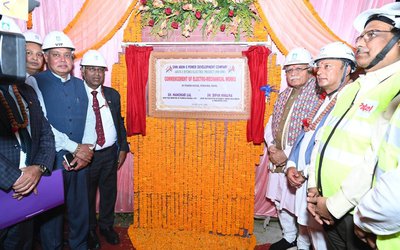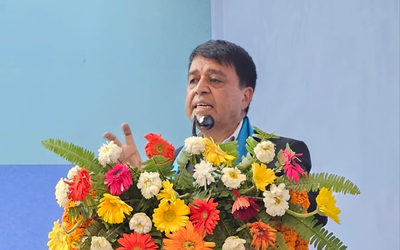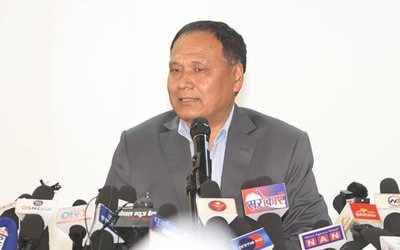Since most of us were in school, we have been hearing the same few attributes being used to describe the economic state of Nepal – ‘developing’, ‘under-developed’, ‘third-world’, or ‘poor’. These descriptions, understood simply, means that Nepal does not have money to spend on its people and on various prerequisites of development. And looking at the pace of economic development in the country, I did not question the use of these adjectives. What I find interesting now is that Nepal may certainly be ‘developing’, ‘under-developed’, or ‘third-world’, but it is certainly not ‘poor’, at least not in terms of lack of monetary resources. The country is sitting on the total capital budget of 311.9 billion and has spent only 2.7 billion – 0.9 percent of the total budget allocated. Nepal has been witnessing the recurring pattern of low capital spending for the past many years. Thus, what we lack is not money – 311.9 billion is a good amount of money; we lack spending capacity, which means we lack proper planning and capacity to utilize the money to our benefit. Do we call ourselves poor? I do not have an answer to the question. Are we any better off by having so much money under our belt? I say no.
The country, on one hand lacks capital expenditure and on the other, lacks effective planning in terms of allocating its budget and incurring timely expenditure. Unfortunately, the government really seems at a loss regarding how to take the next steps and this confusion and lack of planning are clearly evident in the statements and reports issued by various branches of the government. We hear that the government has been able to spend only 0.9 percent of the total capital budget. Simultaneously, we hear the Ministry of Industry issuing a statement highlighting the fact that it is facing a budget crunch to implement some key projects it initiated this year. The projects include revival of six different defunct state owned enterprises and the promotion of small and medium enterprises. The Ministry of Industry also aims to set up Allo processing centres in different locations in the country. These projects are not only highly beneficial for long term development of the country, but can also drastically increase the government’s capital expenditure. Reports reveal that even though the Ministry of Finance is positive about allocating some amount towards these projects, there have been delays in the issuance, which will undoubtedly delay the project. If the Government aims to increase its capital expenditure, then it should really pick up its pace in financing these projects. Unfortunately, we see no significant progress in the government’s ability to jump on the right wagon.
We see yet another example of lack of effective planning on the government’s part and lack of clarity regarding how it aims to increase capital expenditure. Reports from about a month ago show that the National Reconstruction Authority was called to discuss the issue of lack of capital spending and to do everything “to ramp up capital spending.” What is interesting is that reports from about a week ago show that the authority has not received any assistance to do what it is asked to do – increase capital expenditure. The authority is supposed to distribute the second tranche of government aid worth Rs. 150,000 to earthquake affected households. However, the budget prepared by the previous government allows for only Rs. 80,000 to be disbursed. And the additional required amount has not been allocated. Moreover, the fiscal budget has allocated only Rs. five billion for the reconstruction of schools, which too does not appear sufficient. It is estimated that the reconstruction of schools with basic equipments and facilities would cost about 167 billion.
All these examples point us to a very unfortunate truth – the Nepalese government is sitting on a lot of money but has not been able to channel it to harness the most benefit. It is necessary to understand that with the state of our current technology, economy, and politics, capital expenditure might not increase rapidly. Therefore, planning and budgeting should be done with utmost care. Reconstruction of schools or public or private expenditure does not require what we do already not have. More funds directed towards such reconstruction activities will help the country recover faster and increase the capital expenditure. Similarly, the projects initiated by the Ministry of Industry are not huge feats that Nepal has not undertaken before and cannot do so now. Proper planning needs to be in place to facilitate and accomplish such initiatives. I firmly believe that we have people and institutions highly capable of doing so; what is lacking is effective mobilization. In absence of proper planning, Nepal will always remain a ‘poor’ country with a lot of money that it cannot utilize.
- Careful Financial Regrouping Cutbacks Imminent
- Nov 18, 2016
- Women Securing Water
- Oct 01, 2016
- Faithful or Fearful Fluctuations
- Aug 31, 2016
- Walking on Prachanda path?
- Aug 11, 2016
- Panic or Productive Consumption
- Aug 01, 2016
















